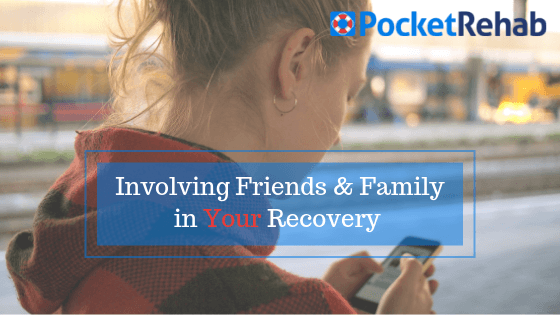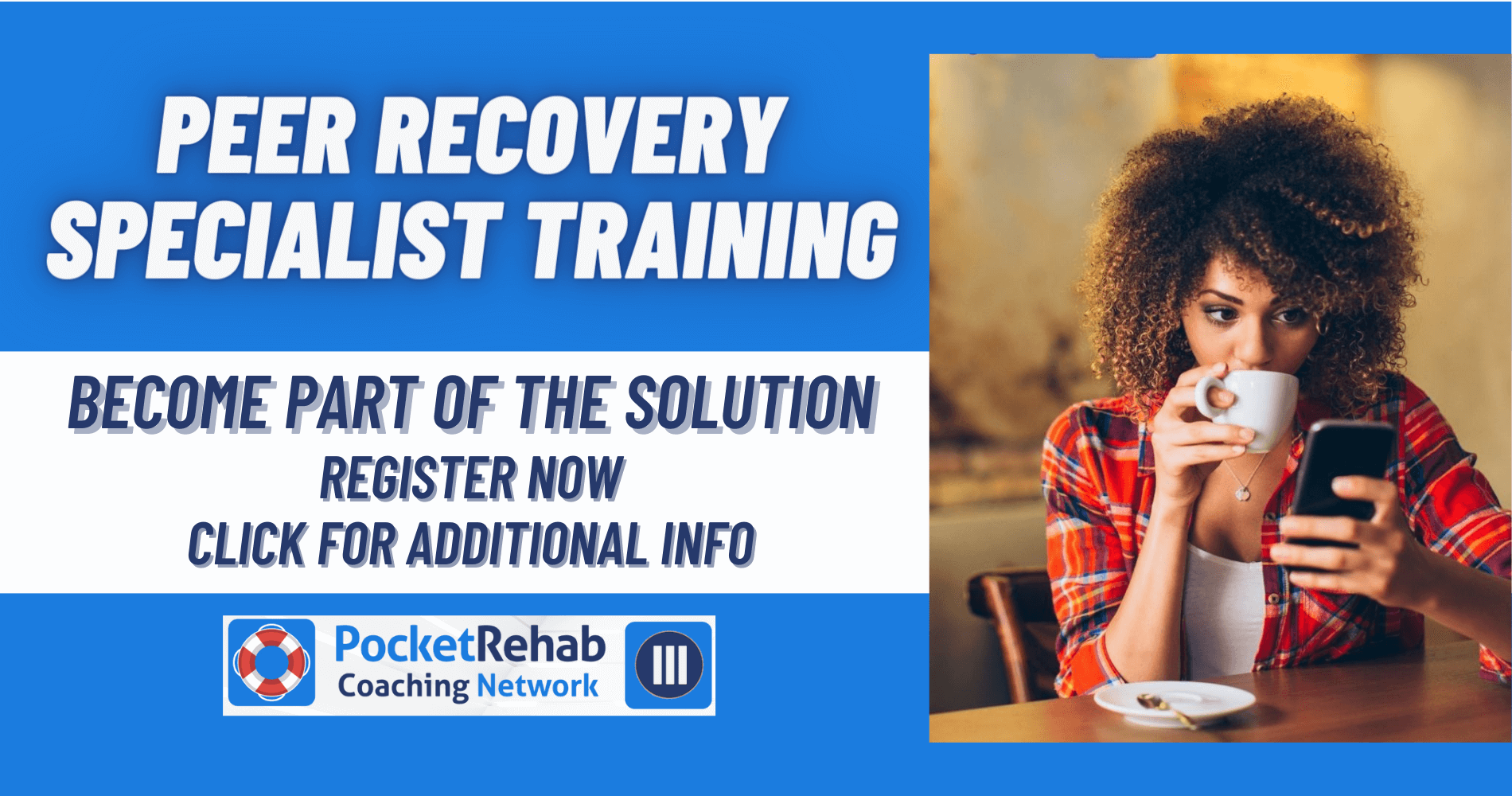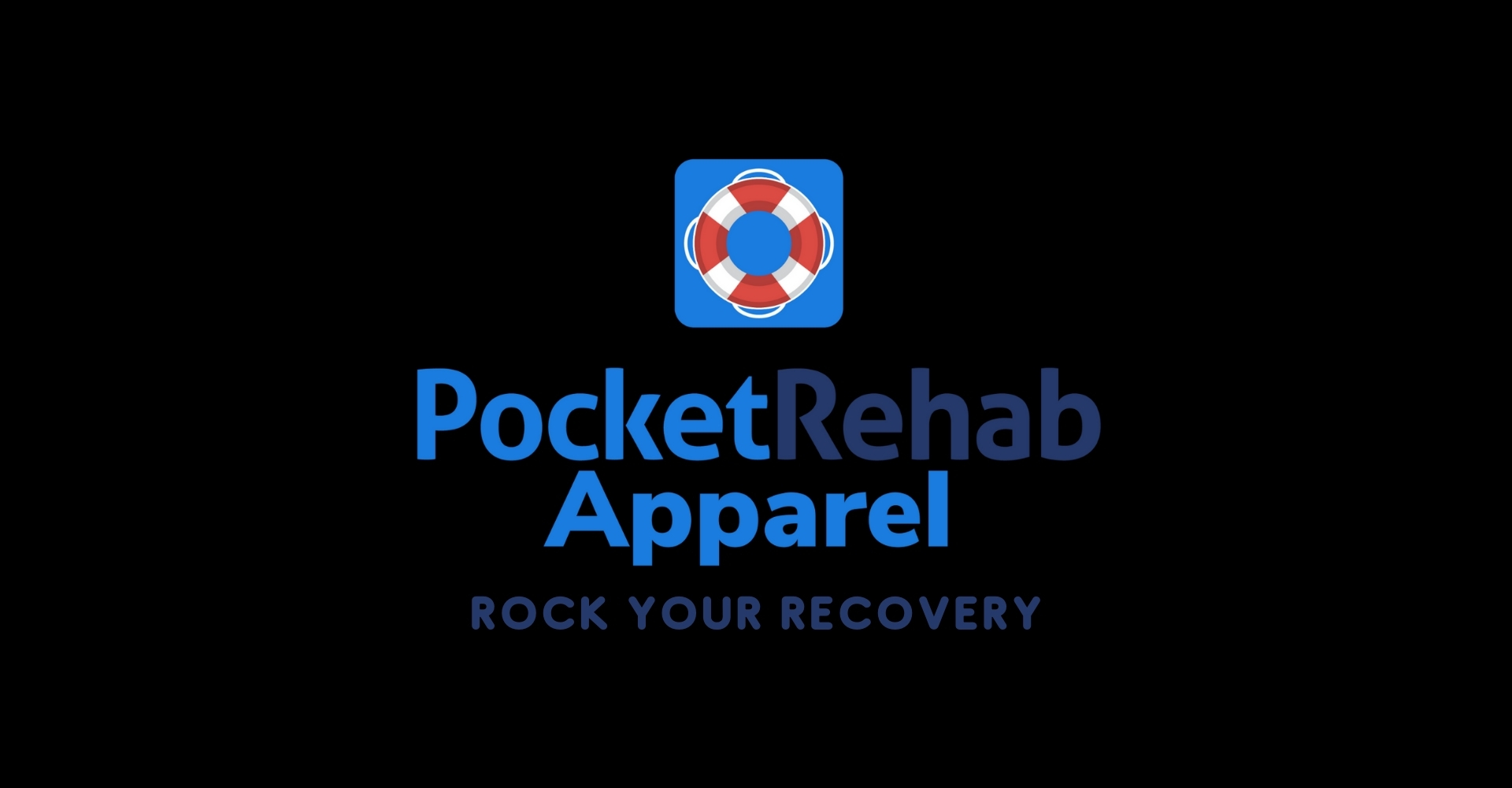Addiction Recovery Apps to Involve Friends and Family in YOUR Recovery

Relationships can be damaged and destroyed following addiction to drugs or alcohol. The restoration of family values, support, and overall healing in early recovery is vital as no other group of people can provide the level of support that a family member or loved one can to a recovering addict. Often times, the family member is the “one thing” that an addict is remaining sober day-to-day for. Addiction recovery apps, such as Pocket Rehab, can help you to bring your family and friends into the recovery process to heal with you and remain active in your recovery journey.
Family is an Invaluable Resource in Recovery
Surrounding yourself with family and friends that are not using drugs or alcohol can be one of the most challenging early activities in recovery. Hopefully you have several family members that do not abuse substances that can provide invaluable support in your recovery. If you have abused drugs with your family, we recommend you help them to seek assistance for their substance abuse too. Spending time with others that use is almost certain to send you into a whirlwind of chaos—so until a family member is sober, we recommend you avoid anyone using drugs or alcohol.
The National Institute on Drug Abuse reports a direct correlation between the level of support an individual in recovery has and their potential for relapse. The more support you have, the lower your risk of relapse. Involving your family in your recovery helps you, them, and your counselor or therapist to further understand how family dynamics may have played a role in your decision to abuse drugs or alcohol.
Sometimes Family Values Suffer from Addiction
If your family was not in any way responsible for your addiction, perhaps the family values have struggled deeply as a result of the addiction? It’s very common for families to suffer as a whole when an individual in the family is struggling with a bad substance use problem. Now that you are doing better and feeling better, it’s time to get the family system back up to par.
If addiction has caused a dysfunctional home environment, it may be time to seek out further counseling and care for the entire family system. You’ll notice some of the following attributes in a dysfunctioning family system:
-
Secrets being kept and a lack of honesty or transparency.
-
Fear of what will happen at home by another individual. You may fear violent outbursts or maybe your family members are in fear.
-
The conflict between family members that are unable to resolve important issues with one another.
-
Reversal of roles. Parents may act like children or children may be acting as a parent.
-
Emotional upset and chaos as individual family members aim to get their needs met and others suffer.
Through addiction, we become accustomed to dealing with or accepting the broken family system. But, family systems, even those in dire dysfunction, can be repaired through counseling and therapy, just as you are able to give up drugs or alcohol with some support. In order for your family to fully back your recovery, they too must recover.
Enabling
Families often struggle with the battle of whether to help or hurt the ones they love. It is very common for a family member to assist an addict thinking that he or she is helping with bills or food or gas. In reality, this “help” is hurting and enabling the individual to use drugs or alcohol more frequently than may be possible if the enabling was not happening.
Equally, families struggle with the idea of NOT helping. The feel like they are giving up or letting go of someone they love. The enabling dynamic is so common in addiction and often continues into recovery.
Unfortunately, enabling can lead to relapse if you aren’t careful. A “good meaning” parent that enables you, could trigger old habits or behaviors. This is essentially promoting addictive behaviors.
Counseling can help with enabling, codependency, and other habits that the family system may still have lingering even after you have found the help you need to get sober. Enabling can also be taken a step further, and may turn into codependency. Codependency occurs when:
-
A sober loved one supports the addiction of a family member to protect him or her from suffering.
-
Going against others who say the addict is sick and continuing to support the addiction or addictive behaviors.
-
Lending money or help to an individual in active addiction to support behaviors that are unhealthy just to prevent backlash.
Codependency usually occurs between a parent and child or between spouses. While overcoming codependency issues can be difficult, because the codependent individual often doesn’t believe they have done any harm, or are doing any harm, there is help.
Help for Codependency & Family Healing
Counseling and therapy can help families to heal. Issues that contribute to family dysfunction and codependency must be addressed properly in order for everyone to have the best chance in recovery. Should the family choose not to get help for their side of the addiction, the risk of relapse for the recovering addict is very high early on.
Family members must learn their role in the recovery process. This is where recovery apps like Pocket Rehab come into play. Through an app, family members and the recovering individual can work together to heal. However, counseling may be further required for the family to:
-
Understand their role in the recovery process and how changing their roles can impact the healing process.
-
Learn how to change behaviors that may otherwise lead to relapse.
-
Change dynamics of a family system that has been broken for a long time—many families don’t realize that the system is broken until they reach counseling for the first time.
-
Learn how to function in a healthy, supportive manner that is conducive to recovery and healing for all involved.
Activities for Family in Recovery
Families can do all sorts of things to assist a loved one in recovery. First and foremost, it’s vital that family members try to understand what the recovering individual is going through. Education on substance abuse and everything that happens in recovery is the first step to full understanding of what someone is dealing with.
Families should consider the following:
-
Avoid name calling or judgment to improve the family system.
-
Understand and be willing to accept that recovery is a challenge for everyone involved.
-
Recognize that the dynamics of the family WILL change if recovery is going to continue.
-
Previous habits are being pushed out for new, healthy habits—go out, have fun, and enjoy each other without drugs or alcohol clouding the view.
-
Recognize that recovery is a process—it takes time, effort, and understanding from all involved.
If Relapse Occurs, What Should Family Do?
Many families spend the majority of their time worrying, “what if relapse occurs?” While this is a valid concern, we encourage you to worry less about relapse as you do more to heal the family system. However, also recognize that relapse is very much a part of the recovery process. While everyone should work together to reduce the risk of relapse, know that nobody has failed if a loved one does relapse.
If your loved one relapses, know that there are many things you can do to help. Offer support in the following ways:
-
Be firm in your decision NOT to enable. Remind the individual to work as hard as they can to get back on track with recovery. Remind them that you are rooting for their sobriety.
-
Offer encouragement and guidance. Do not point fingers or judge. Judging an addict that has relapsed could trigger a tailspin. Instead, be supportive and encouraging, knowing that relapse happens even to the best people.
-
Be a healthy example. Avoid situations that would trigger your loved one. Do not abuse drugs or alcohol and be the face of recovery for them to look up to.
-
Remain open-minded. Even if relapse takes longer for your loved one to overcome than you would like, stay open-minded that he or she will find a way back to sobriety. Remain supportive without enabling and you will see them eventually make better decisions.
Social support is vital throughout this process, both in recovery and in relapse. Family is a major player in the social support network of those in recovery. Family members can actively play a role in the recovery of a loved one by remaining involved, remaining supportive, and remaining optimistic throughout the process.
We welcome family and friends to check in with their loved ones on Pocket Rehab, an app that allows connections between individuals in recovery. Often times, those in recovery feel like they have done their family or friends more harm than good—and they will distance themselves from the people that matter most. This is where the support network through the recovery app comes greatly into play. Help others, support others, and grow in recovery.
Tags: family, family in recovery, family involvement, addiction recovery, friends, relationships, support, recovery, recovery apps, sobriety apps, rehab apps





